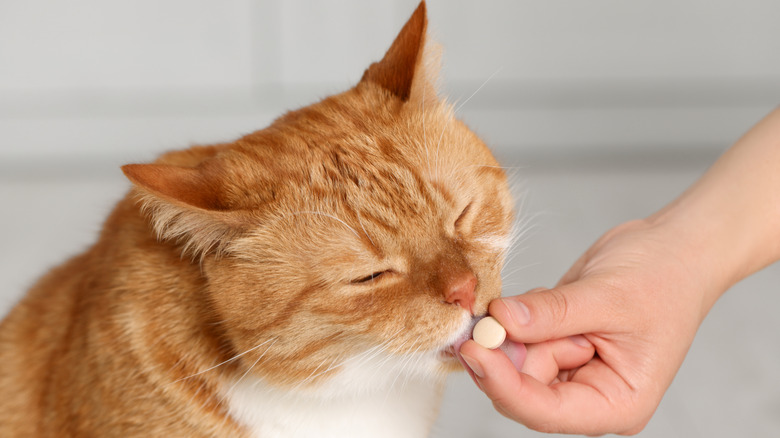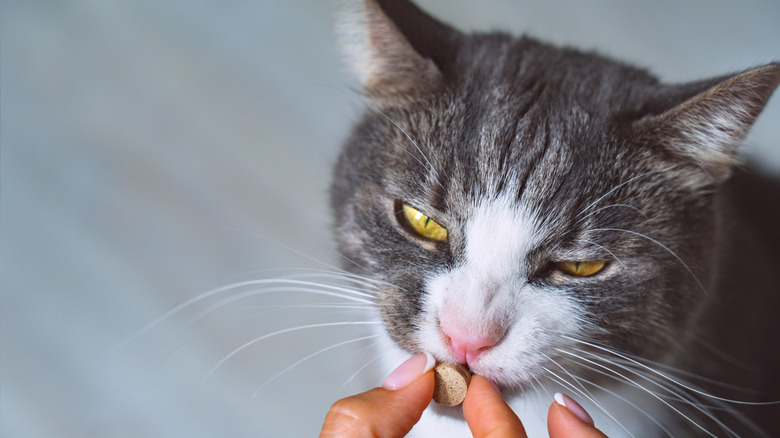Baby Food Is The Secret Ingredient You Need For Hiding Your Cat's Medication
Your vet just sent you home with a prescription for your cat that it needs to take daily. If you have a particularly picky kitty, you may be wondering how to give a cat medicine. There are lots of tips out there for giving pills to your cat, but one item in your pantry may make pill time a breeze: baby food.
The experts at PennVet recommend using meat-based baby food as a way to hide your cat's medication. Your cat's pill or capsule can be ground up and mixed into the food before being given to your furry friend. If you can't crush the pill, coat it with baby food, making it easier for your cat to swallow. You can also mix liquid medication into baby food, which helps mask the flavor of the medicine and entice your cat to gobble it down.
However, there are a few flavors of baby food you want to avoid. Avoid meat-flavored foods mixed with ingredients such as onion or garlic flavoring, as these ingredients are harmful to cats. You'll also want to avoid flavors outside of meat. In addition to not being as palatable, they could contain ingredients that are toxic to cats, such as lemon juice. Moreover, to keep your fur baby healthy, baby food should only be given as a treat with your cat's medication; it shouldn't make up a large portion of its diet.
When to consider alternatives to baby food for hiding cat medicine
Crushing your cat's medication into baby food can be a great way to get it to take it. However, there are a few scenarios when you shouldn't do this. Some pills have special coatings or formulations that could be altered by breaking them apart. You want to first make sure the pill you're combining with baby food can be safely crushed. Some pills, such as extended-release formulas, shouldn't be crushed, as it affects the efficacy and dosing of the medication. What's more, enteric-coated pills designed to pass through the stomach without being digested can lose the ability to do this if crushed. Even if you're sure your cat's medicine can be crushed, be extremely careful because some medications can affect humans, too, if absorbed through the skin.
Before you get started with this practice, make sure it's okay to give baby food to your cat if it has underlying health issues or special dietary needs such as kidney disease, diabetes, or food allergies. Some cats require specifically tailored diets to treat their health conditions. Instead, you may want to look into using a pet piller. You can also hide the pill directly in something like boiled chicken. If your cat simply doesn't like baby food, similar alternative like lickable cat treats may be used in the same way.

